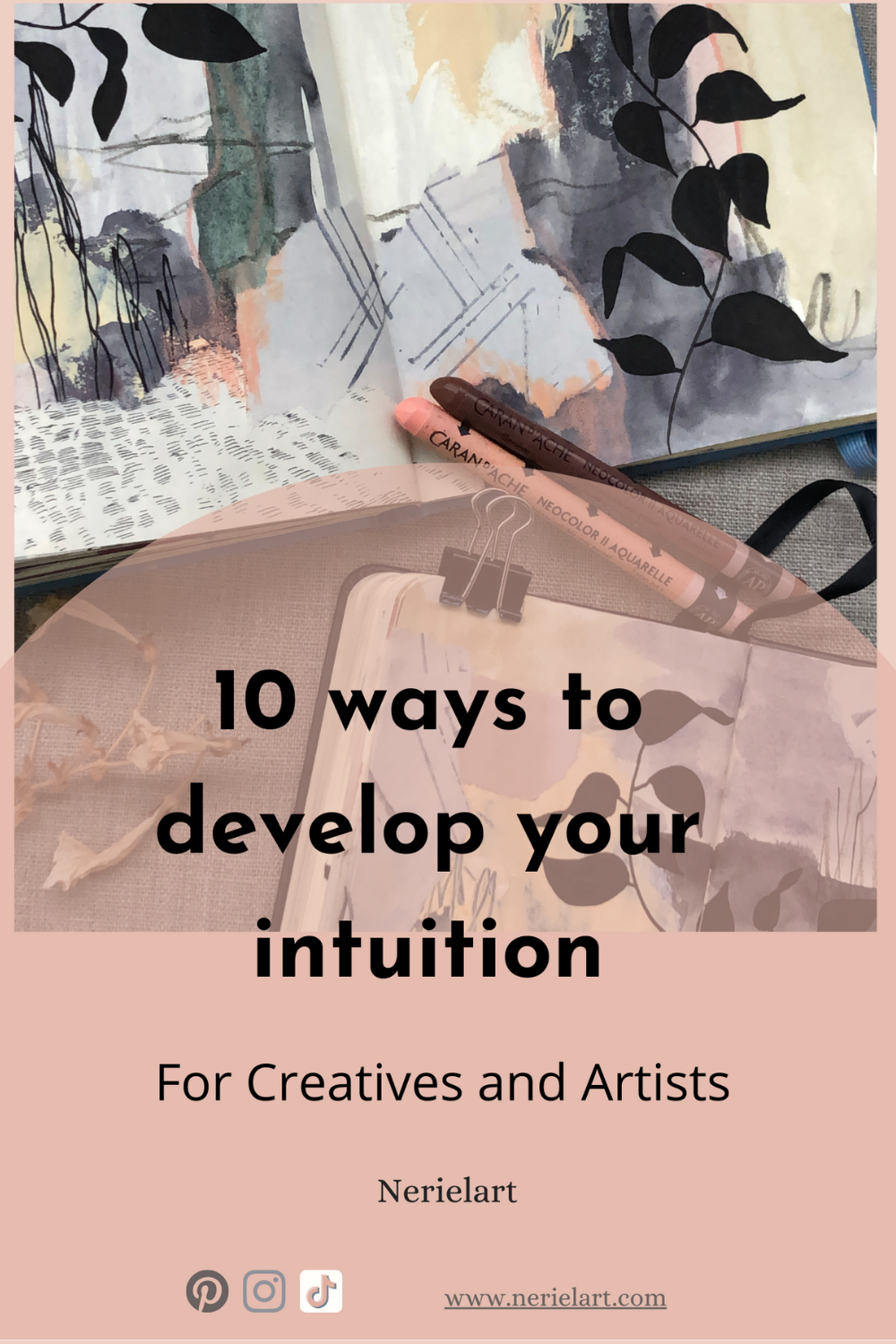How to Cope With Art Block
The Magic of Tiny Paintings
Welcome to my first blog post. This will cover my own experiences, why art block happens, how we can understand it and what to do about it.
My experience with art block
I have been painting on and off my whole life. I have experienced bursts of creativity and then weeks, months or even years where I just stopped painting. Why? I just didn’t feel like it. I had no motivation, I was not happy with my art, I struggled with negative thoughts about my art. I had thousands of reasons not to paint.
In the summer of 2020 I decided to approach my art in a different way. Something had to change.
It may sound like a cliché, but I actively started to disagree with those thoughts and instead asked myself relevant questions like: Why do I want to paint? How do I want to feel while painting?
My thoughts on why art block happens
There are so many books, blog posts and videos about Creative Block or Art Block, but why do we experience it?
I think a compassionate way to look at it is that your brain is trying to tell you that it needs rest. Maybe you have a lot going on in your life and your brain is in a state of “information overload”. If this is the case then maybe you need to take some well deserved time-off. Not just from art, but from information (podcasts, tv-series, smartphone, social media etc.).
It´s biologically impossible to feel good all the time. As humans we have more negative than positive emotions (because of the evolutionary success of negative emotions). Our emotions gives us important information regarding what we need. So what do you need right know? A break, or 10 minutes of tiny paintings? Both are valid and important.
If you try to cope with this, but it´s just not going away it can be a good idea to ask for help. The consequences of art block can be huge, especially if you earn your living as an artist. Self-criticism is one of the main factors driving depression and anxiety, but there is a lot of good help out there. (this depends on where you live, but ask your general practitioner (GP)/family doctor, what your options are. Maybe you can get a referral to a licensed psychologist).
Why Tiny Paintings?
Because they are so low key!
They are the tiniest scary blank page or white canvas you will ever face.
You don´t need a lot of time (10 minutes is more than enough). Check out my free guide down below if you want more on this.
They can kick start your motivation and creativity.
They are also darn cute!
Some tips and trick
Use high quality watercolor paper if you are able to. I like to use 300 gram hot press or cold press watercolor paper. If you use Acrylic paint then you don´t need watercolor paper, but I prefer a thicker paper. And I would recommend to Gesso the paper before cutting it up.
Use your favorite art supplies and color palette. This is not the time to challenge yourself to explore a new realm of art.
Cut your paper up just the way you feel like. There are no rules. Tiny squares, rectangles, circles or organic shapes.
You only need 10 minutes. If you don´t feel like painting after this, then take break. If you are feeling burned out, then take a break.
After some painting sessions with Tiny Paintings you will have a huge collection of inspiration for when you feel like creating art on a bigger scale.
What do you think?
Will you try out tiny paintings?
How do you cope with Art Block? I would love to hear from you (so I can get an even bigger source of inspiration when I experience this). Feel free to leave a comment down below so everyone can get the benefit from your advice. I would also love to hear from you over on Instagram or feel free send me an email with any feedback or questions.
Want some more Inspiration? You might enjoy this blog post:
19 Drawing Prompts That Will Kickstart Your Creativity!
I wish you a Kind and Self-Compassionate Creative Practice
x Eirin
Medical Disclaimer
Information on this website are for general information only and is not a substitute for and does not replace professional consultation with a qualified health care provider familiar with your medical history and individual needs. Please don’t postpone seeking help because of something you read on this website.
If you need to talk to someone after reading this; please reach out to you general practitioner (GP) and check out what possibilities there are for treatment or help in your area.




